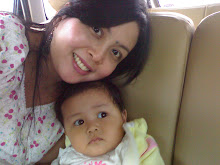Eating for two
| A good diet gives you and your baby the best chance of staying healthy The mere thought of food in the first trimester of pregnancy can provoke the ‘gag reflex’ in many women as morning sickness hits. But, while it’s natural to have aversions to some foods, it’s vital to eat enough to sustain you and your growing baby now and right through your pregnancy. A balanced diet is the key. What you put in your mouth impacts on both of you. Your body is working hard, especially in the first trimester. You're making the placenta, the baby's life-support system; your hormone levels and metabolism are changing; and your blood sugar and blood pressure tend to be lower, which can make you feel tired. Don’t make the mistake of grabbing energy-dense food like pies and pastries when you’re hungry. Instead, choose good-quality protein – lean meat, fish, chicken, eggs, nuts or legumes – and a good mix of fruit, vegetables and good-quality carbohydrates. That way, you’ll have the fuel needed to help cope with tiredness, and you’re delivering top-class nosh to the baby growing inside you. An empty stomach can increase nausea, so eat frequent small meals if you have morning sickness. Try eating small amounts of bland food throughout the day. Good choices include plain dry biscuits, yoghurt or bananas. Water and fiber are also essential and help prevent constipation. Keep hydrated; aim for eight glasses of water a day. |
Folic Acid and Iron
| If you began taking folic acid before you got pregnant, continue to do so for the first three months. Even if you didn’t, start taking it once you find out you are pregnant. Folic acid has been shown to reduce the risk of neural tube deficiencies (such as spinal bifida) in babies. A recommended dose is 800mcg (.8mg) of folic acid a day for this time. You can buy it over the counter at the chemist, or have it prescribed. Although folic acid is in vegetables, tomatoes, dried beans and peas, diet alone cannot provide enough folic acid for pregnancy. Some women also require extra iron. A blood test will check your iron levels and, if necessary, your doctor will prescribe extra iron for the duration of your pregnancy. It’s also a time when your body needs more calcium, for bone growth in the baby and to protect your own bones. Calcium intake should go up from around 900mg a day to 1300 mg at this time. You don’t need to swallow a tablet to do this – check the amount of calcium in yoghurt, milk and cheese and try to eat more of these. |
Fruit and Veggies
| Experts recommend you have five servings of fruits and vegetables each day - preferably three servings of yellow fruit and vegetables and green leafy vegetables, and two servings of other fruits and vegetables.
This is definitely not the time to be trying to lose weight. Babies of a low birth weight – due to the mother’s poor nutrition during pregnancy - are more at risk of developing health complications. By eating a balanced diet, you are doing the best you can for yourself and your baby. |

No comments:
Post a Comment